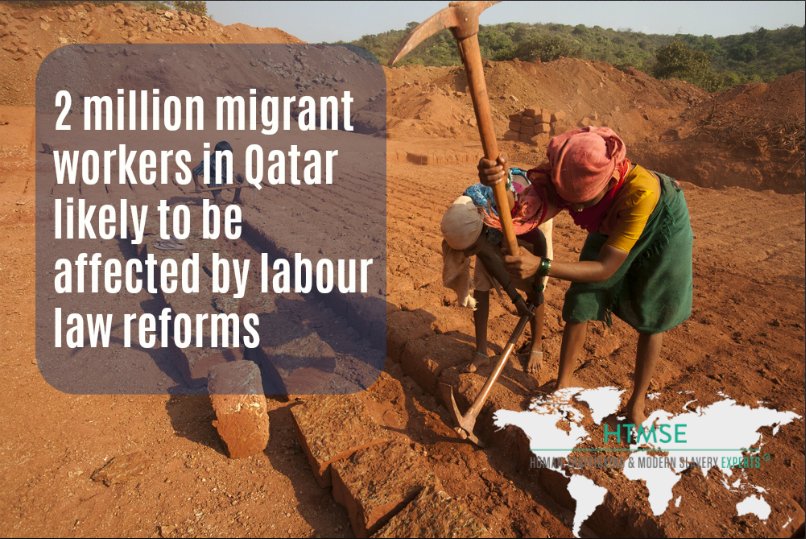
In addition to workers in the fishing industry and agriculture, construction workers are among the most highly vulnerable groups to modern slavery. In recent years, the issue has come under global spotlight after reports of the plight of hundreds of migrant workers at Qatar’s 2022 World Cup sites (Khalifa Stadium and Aspire Zone) working under extremely harsh conditions and for no pay.
Qatar’s award of the 2022 World Cup contract has resulted in an unprecedented demand in low-skilled workforce – and with foreign workers accounting for 90% of Qatar’s workforce, in the flourishment of recruitment agencies abroad. The offer of promising salaries and the possibility to send remittances home easily persuade thousands of Indian and Nepalese workers to pay substantial commissions to the agencies, only to later find themselves exploited and underpaid. Among the many abuses suffered by workers, deceptive recruitment, inhumane working and living conditions and irregular or non-existing payment of wages are those most commonly disclosed. The gravity of the labour law violations resulted in the death of 1,800 migrant workers in the three years preceding 2014, leading the ITUC to predict the death of further 7,000 workers before the start of the World Cup.
Despite having introduced laws preventing employers from withholding their employees’ ID and travel documents, a loophole remains by which employers may legally keep their employees’ passports with the latter’s written consent, which may well be obtained under duress. In addition, the kafala sponsorship system in place prevents workers from changing jobs when in Qatar or leave the country without their employer’s consent. Artificial changes to the law have been made, but employees are still required to obtain their employer’s permission to look for alternative work or leave. Lastly, employees are deterred from reporting any violations to the relevant authorities for fear of reprisals.
The issue is compounded by several local shortcomings, such as the lack of corporate due diligence to identify these abuses, the lack of monitoring of small sub-contractors by the relevant supervisory authority and abuse of self-reporting processes. But as a consequence of the international reputation of the World Cup, the responsibility to prevent labour exploitation not only lies with domestic institutions, but with FIFA itself. However, a recent Amnesty International report on the issue has found FIFA’s reaction and investigations to be precarious at best, leading a Dutch union to sue FIFA in Zurich in order to compel the organization to adopt ‘minimum labour standards’ for migrant workers – a claim that was subsequently rejected.
In order to end these violations, responsible actors at all levels must be held accountable – from recruitment agencies in third countries profiting from misrepresenting terms of employment and domestic authorities at construction sites failing to identify and prosecute labour abuses, to the international organisation under whose aegis the abuses occur.